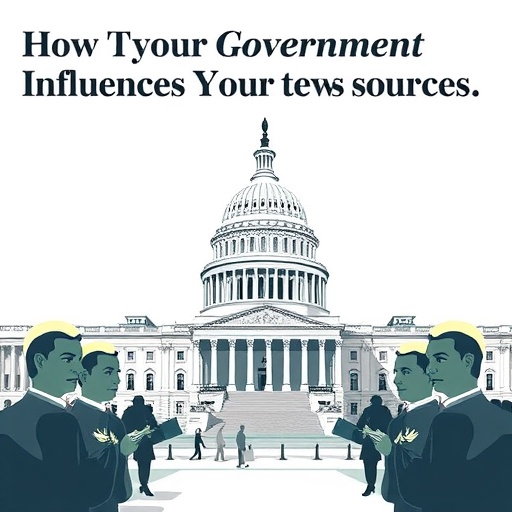In the shadow of violent conflict, where information is as precious as peace itself, the ways in which citizens engage with news media take on a critical dimension. Recent findings from Binghamton University’s Political Science Professor Seden Akcinaroglu illuminate how perceptions of government effectiveness fundamentally shape the trust and reliance individuals place on different types of media during times of unrest. The research, conducted in the turbulent backdrop of Turkey’s conflict with the Kurdistan Workers’ Party (PKK), exposes intricate relationships between exposure to violence, media trust, and governmental credibility, with wide-reaching implications for media consumption behaviors in conflict and non-conflict settings globally.
Akcinaroglu’s work situates itself at the nexus of conflict dynamics, investigating how states, insurgent groups, and citizens interact within contested spaces. Unlike many studies focusing solely on elite actors or military tactics, her research foregrounds citizens as active information seekers whose media preferences can influence strategic decisions made by both governments and rebels. Central to the study is the differentiation between regime-aligned media—those controlled or heavily influenced by governments—and non-regime or independent media, often accessed through alternative channels such as social media platforms.
The media landscape in Turkey provides a compelling case study. Over recent decades, the Turkish government has systematically consolidated control over mainstream media outlets by absorbing major news organizations into pro-government corporate conglomerates and erecting barriers that impede independent journalism. Such developments have provoked heightened censorship, especially regarding conflict-related reporting, thereby narrowing the space for critical or dissenting voices in traditional newspapers and broadcast outlets. In response, social media has burgeoned as a relatively open arena, perceived by citizens as less susceptible to direct government control, where political discourse and alternative narratives flourish.
A key insight from the research is that mere exposure to violence does not straightforwardly translate into diminished trust in non-regime media; instead, it is the perception of government failure to uphold citizen safety that drives skepticism toward regime-aligned sources. Citizens grappling with ongoing conflict often interpret violence — regardless of perpetrator — through the prism of state responsibility. If the government is deemed ineffective or neglectful, individuals are more inclined to reject pro-government media narratives and gravitate toward social media or independent outlets, seeking information they regard as more credible and truthful.
Interestingly, the study uncovers a nuanced dynamic regarding accountability for rebel-related violence. Rather than direct condemnation, many citizens contextualize such violent acts within a broader framework of state obligation. When counterterrorism efforts inadvertently harm civilians, backlash against the state intensifies, complicating the binary of good state versus villainous rebel. This multidimensional perception fuels complex media trust patterns, underscoring the need for a more nuanced understanding of public opinion dynamics in conflict zones.
Social media emerges as a double-edged sword in this environment. While it broadens access to diverse information sources and enables marginalized voices, it simultaneously serves as a battleground for competing political narratives, including misinformation campaigns from both pro- and anti-government factions. Younger demographics and those harboring fundamental doubts about governmental efficacy show a marked preference for social media as their principal source of political information. For these groups, exposure to violence compounds the inclination to eschew traditional legacy media in favor of platforms perceived as offering uncensored content.
The research extends implications beyond Turkey’s borders and conflict conditions, touching on broader societal trends in democracies marked by partisan polarization and fragmented media ecosystems. In such contexts, the dichotomy between regime and non-regime media manifests as partisan divides, where citizens’ trust in news sources correlates strongly with their political loyalties and perceptions of institutional performance. Moreover, in crisis scenarios where information scarcity or manipulation prevails — such as the recent global coronavirus pandemic — similar patterns of media trust and consumption emerge, reinforcing the politicization of knowledge and public health.
A pivotal factor enabling citizens to navigate restricted or manipulated information landscapes is the availability of technological tools like Virtual Private Networks (VPNs), which help bypass censorship. However, the mere existence of such tools is insufficient without an intrinsic motivation rooted in skepticism and the desire for reliable knowledge. Citizens’ critical attitudes toward government narratives ignite media-seeking behavior that transcends borders and oppressive controls, highlighting the agency of individuals even within constricted political environments.
The ripple effects of social media consumption also influence traditional news outlets. As citizens increasingly demand access to multiple perspectives, mainstream media face pressures to adapt and incorporate diverse viewpoints to maintain credibility and relevance. Even in states where media is heavily state-controlled, independent outlets and digital platforms persist, acting as vital counterweights to governmental messaging and fostering pluralism in information dissemination.
Akcinaroglu emphasizes the importance of media literacy in this fraught landscape. Distinguishing reliable news sources from propaganda becomes an essential skill for citizens immersed in politically charged environments. Misinterpretation or uncritical acceptance of information can skew public understanding and decision-making, underscoring how deeply perceptions underpin media engagement and political behavior. Consequently, media literacy initiatives are as critical as addressing structural challenges like censorship and media consolidation.
Ultimately, the study reveals that citizens’ trust in media during conflict is far from a mere function of violence exposure; it is deeply intertwined with their judgments about the government’s effectiveness. This relationship shapes not only what sources people turn to but also how they interpret unfolding events and make consequential decisions. As political climates continue to evolve and information ecosystems become ever more complex, understanding these dynamics offers essential insights for scholars, policymakers, and media practitioners seeking to foster resilient, informed societies.
Subject of Research: People
Article Title: The role of exposure to violence in citizens’ relative trust in media types for conflict-related information and news
News Publication Date: 9-Aug-2025
Web References:
http://dx.doi.org/10.1177/175063522513503
Image Credits:
“Newspapers B&W (4)” by NS Newsflash is licensed under CC BY 2.0.
Keywords:
News media, Social media, Television, Media violence, Communications, Social sciences, Political science, Government, Sociopolitical systems, Violence




